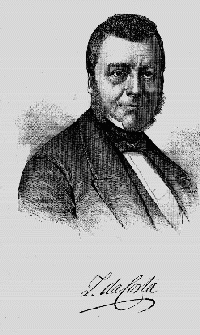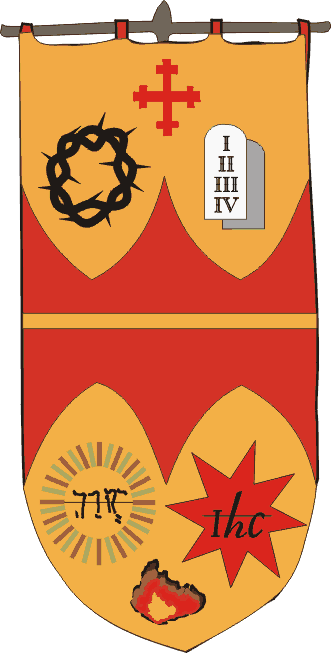I’m often wondering about Dr. Isaac Da Costa. (1798-1860) The warmth of his writing, the honest, the knowledge, for me he is certainly the greatest Jewish Messianic we have had in the Netherlands. He is a spiritual son of the impressive Willem Bilderdijk, a great Dutch poet.
We have many beautiful books from man like these. But even as the Messiah is rejected and hidden by the world, also the most beautiful literature is thrown away because they didn’t see the beauty, here in the Netherlands, and outside they can’t even read it. E.g. many of you know the painter Rembrandt because it’s not written in language, but we have much greater art. We have scholarly writers and poets who were guided by the Ruach haKodesh. And now I’ve found a book on Google Books of Isaac Da Costa, also a poet, and I’ll share this with you. Please read the last a few pages from 623 to the end. And you’ll feel the warmth and faith of one who was speaking at a time when the land of Israel was a dessert. And he was still not alone with his expectations.
it’s not written in language, but we have much greater art. We have scholarly writers and poets who were guided by the Ruach haKodesh. And now I’ve found a book on Google Books of Isaac Da Costa, also a poet, and I’ll share this with you. Please read the last a few pages from 623 to the end. And you’ll feel the warmth and faith of one who was speaking at a time when the land of Israel was a dessert. And he was still not alone with his expectations.
Isaac Da Costa was a great poet. Dutch people are very blessed, but most of them didn’t understand. Certainly they are rather rejecting it then have interest. We saw it: Bilderdijk and Da Costa where against the Enlightenment which clearly appears as apostasy from G’d and religion. And they where persecuted and rejected like the prophets of Israel and their great rabbi Yeshua himself. It’s not to much to say that the liberals wants them to put to dead. That’s not new for fellowers of Messiah! My dear (Jewish) brothers! I’m sharing in your misery now (as a gentile), but I’ll also share in the kingdom when the Messiah shall build up the house of Jacob and reign with his people! Then we’ll understand.
Here’s the link:
http://books.google.nl/books?id=1EMLAAAAIAAJ&printsec=frontcover
Israel and the Gentiles, contributions to the history of the Jews, Isaac Da Costa, 1850.
Quote about Christian and Jewish religion:
I have discovered more and more its perfect harmony with the dispensations of God, and the declarations of His Word; and the Jewish nation has been brought to my view more strikingly as an abiding testimony to the truth of the Christian religion, a living commentary upon the Scriptures, a certain pledge of the entire fulfilment of prophecy.
from: Israel and the gentiles, preface page ix.
